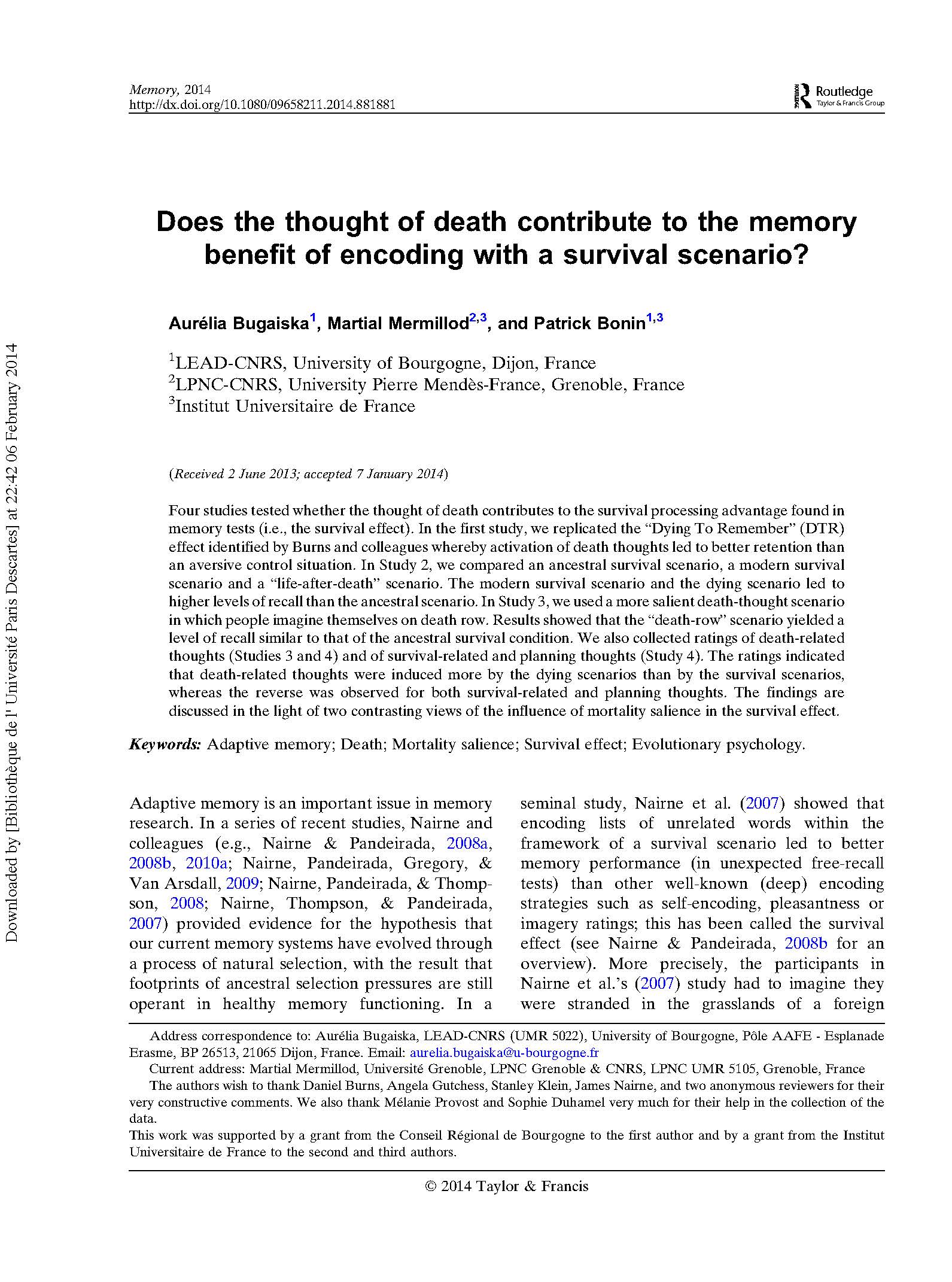Four studies tested whether the thought of death contributes to the survival processing advantage found in memory tests (i.e., the survival effect). In the first study, we replicated the “Dying To Remember” (DTR) effect identified by Burns and colleagues whereby activation of death thoughts led to better retention than an aversive control situation. In Study 2, we compared an ancestral survival scenario, a modern survival scenario and a “life-after-death” scenario. The modern survival scenario and the dying scenario led to higher levels of recall than the ancestral scenario. In Study 3, we used a more salient death-thought scenario in which people imagine themselves on death row. Results showed that the “death-row” scenario yielded a level of recall similar to that of the ancestral survival condition. We also collected ratings of death-related thoughts (Studies 3 and 4) and of survival-related and planning thoughts (Study 4). The ratings indicated that death-related thoughts were induced more by the dying scenarios than by the survival scenarios, whereas the reverse was observed for both survival-related and planning thoughts. The findings are discussed in the light of two contrasting views of the influence of mortality salience in the survival effect.
Does the thought of death contribute to the memory benefit of encoding with a survival scenario?
